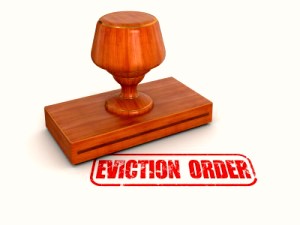In the state of California, tenants and landlords have certain rights after signing a commercial lease or residential rental agreement; however the laws are very different. For instance, state law allows a tenant to assign a commercial lease to another party as long as both the landlord and tenant agree in writing. In some cases, it may be possible to assign a residential lease, although most leases restrict assignments and sub-leasing without the landlords permission. This prevents the landlord from ending up with an unwanted tenant and having to file an Unlawful Detainer Eviction against the unwanted tenant. In the case of a commercial lease, a landlord may be able to restrict assignment assuming said restriction is reasonable. To fully understand your right, you’ll typically have to consult with Real Estate and Eviction Experts.
Tenants who have signed a residential lease agreement may be able to withhold rent if certain repairs are not made the repairs are directly related to habitability of the dwelling unit and the after reasonable notice has been given to the landlord and the landlord fails to make the needed repairs. Even if it is not in your rental agreement or lease, your landlord is required to keep your building and unit in a habitable condition. This means that your landlord must ensure the building is structurally sound, provide hot and cold water, ensure the roof is not leaking, and keep the plumbing, electrical and heating systems all in safe operating condition. Pest infestation also requires the landlord to pay for an exterminator service if necessary, unless the infestation was caused by your wrong doing, or poor housekeeping. Commercial tenants may not withhold rent if repairs are not made because there is no warranty of habitability in a commercial rental agreement or tenancy. However, a commercial lease contract would have to state which repairs that a landlord is obligated to make as part of the agreement. Even if the lease agreement stipulates that repairs must be made, a tenant may still need to sue the landlord for breach of contract after paying rent instead of withholding it.
California Commercial Landlord Tenant
Residential lease agreements may not include terms that modify the California eviction laws. However, commercial lease agreements may include terms that modify certain parts of the eviction law. For example, it may be possible for a tenant to waive his or her right to a trial by jury. A landlord could accept partial rent payments without waiving his or her right to take possession of a property.
Landlord or tenants who are having a dispute over their California based landlord tenant lease agreement may wish to hire an experienced attorney who practices and is familiar with the eviction and Unlawful Detainer laws and who also understands the differences between a residential and commercial evictions in California, as this is when many tenants get mixed advice about laws, notices, and what can be done legally. An attorney may be able to review the lease to determine whether or not it meets the California state law and whether or not it has actually been breached. If it has been breached, legal counsel may be able to help the breached party seek relevant relief under the law.

